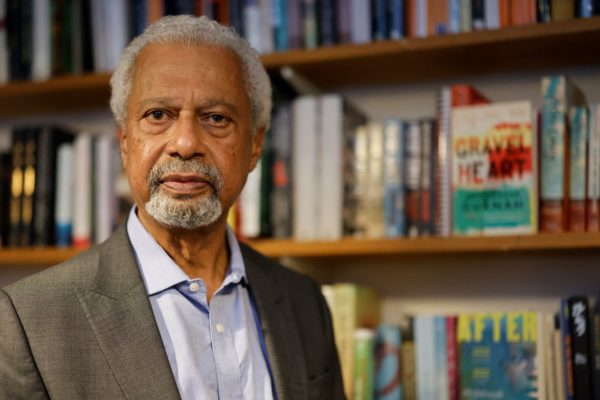Abdulrazak Gurnah has been named the 2021 recipient of one of the world’s most prestigious awards: the Nobel Prize in literature.
The Tanzanian novelist is the first Black writer to be awarded the prize since 1993. His career’s body of work narrates tales of immigrants grappling with identity under the thumb of imperialism.

Gurnah, a South African refugee who has called Britain home since the 1960s, published his first novel, “Memory of Departure,” in 1987; since then, his works have been praised by readers and scholars.
Only now are Gurnah and his literary efforts being recognized for “uncompromising and compassionate penetration of the effects of colonialism and the fate of the refugee.”
Since the history of the Nobel prize in literature, which was first awarded in 1901, only four of the 118 winners have been Black. Those awarded include Nigerian playwright Wole Soyinka (1986), Saint Lucian poet Derek Walcott (1992) and American literary icon Toni Morrison (1993).
While speaking with BBC News, Gurnah discussed how his work has been an observation of life. “I don’t do this because I want something kind of practical to come out of it, something that will change anything because that’s really up to people,” he said. “I write to the best and leave it to do its work wherever.”
He marked his Oct. 7 accomplishment with a tweet, saying, “I dedicate this Nobel Prize to Africa and Africans and to all my readers. Thanks! #NobelPrize.”
While speaking with BBC News, Gurnah discussed how his work has been an observation of life. “I don’t do this because I want something kind of practical to come out of it, something that will change anything because that’s really up to people,” he said. “I write to the best and leave it to do its work wherever.”
Gurnah recounted that when he first heard the news of his career work reaching the eminent recognition he thought he was being pranked. “These things are usually floated for weeks beforehand, or sometimes months beforehand, about who are the runners, so it was not something that was in my mind at all,” he told The Guardian. “I was just thinking, I wonder who’ll get it? I am beyond honored to be awarded this prize and to join the writers who have preceded me on this list. It is overwhelming, and I am so proud.”
To others, like his longtime editor Alexandra Pringle, the award is overdue. “He is one of the greatest living African writers, and no one has ever taken any notice of him,” said Pringle to Reuters. “I said that he was one of the people that has been just ignored. And now this has happened…He’s an extraordinary writer writing about really important things.”
“[Gurnah] has consistently and with great compassion penetrated the effects of colonialism in East Africa, and its effects on the lives of uprooted and migrating individuals,” said Anders Olsson, chair of the Nobel committee. Along with the golden Nobel medal and a certificate, Gurnah was also awarded 10 million Swedish kronor ($1.14 million).
Social media comments on the news included one from Twitter user @Elif_Safak: “Many many congratulations to a great writer, sharp mind and compassionate commuter between cultures and continents #AbdulrazakGurnah”
Another added, “This is so inspiring at a time when so many nations are closing the door to future Nobel laureates, leaders and entrepreneurs”
To read more stories like this, visit AtlantaBlackStar.com


